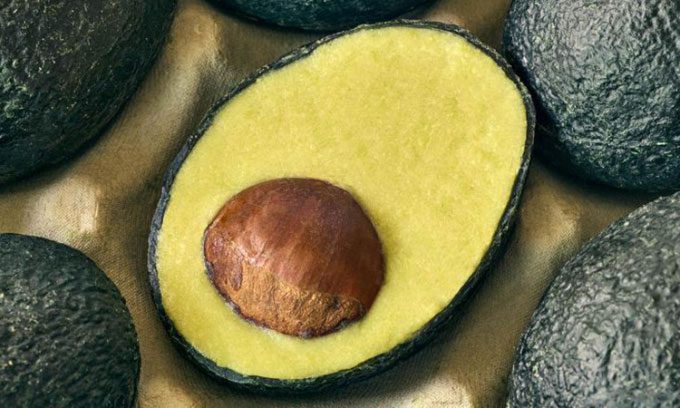British Researcher Creates Fake Avocado from Beans and Seeds, Utilizing Local Ingredients and Environmentally Friendly.
Known as “green gold,” avocados have become increasingly popular in recent years. According to estimates from the World Economic Forum (WEF) in 2020, the world consumes about 5 billion kilograms of avocados annually. However, this comes at a significant environmental cost: approximately 2,000 liters of water are used just to grow one kilogram of avocado, and forests are also cleared to make way for avocado plantations, CNN reported on August 12.

Ecovado looks very much like a real avocado. (Photo: Arina Shokouhi)
British researcher Arina Shokouhi has developed a “fake avocado” as an alternative to real avocados that is more environmentally friendly, called Ecovado. She hopes it will inspire people to think carefully before slicing avocados for toast or making guacamole.
At first glance, it is difficult to distinguish Ecovado from a real avocado. The skin of Ecovado is made from beeswax and natural food coloring containing charcoal powder and spinach. The flesh is made from four simple ingredients: horse beans as the base, apples for freshness, cold-pressed canola oil for creaminess, and a bit of hazelnut. A whole chestnut or hazelnut is used as the pit.
Shokouhi collaborated with Jack Wallman, a food scientist at the University of Nottingham, to develop Ecovado. Wallman has studied the molecular properties of avocados to understand what gives the fruit its creamy texture.
Horse beans differ from avocados in molecular structure and are quite difficult to mask their “bitter” taste. However, after some research, the team found a way to balance the ingredients and create a high-quality avocado alternative. Shokouhi stated that the research team took eight months to perfect the formula.
Shokouhi hopes that Ecovado will provide health and environmental benefits as it is a locally sourced food. Horse beans are relatively easy to grow in the UK, with about 740,000 tons harvested annually.
Shokouhi’s product has attracted interest from several potential investors. She is still refining Ecovado and hopes it will be sold in supermarkets at a price comparable to that of real avocados. Shokouhi has also experimented with Japanese edamame. She believes that Ecovado could be produced in various countries by utilizing different local ingredients in the future.
“The taste may not be 100% like real avocado, but that’s not too important, as long as you can still eat it with bread, it looks like avocado, tastes good, and is healthy,” she shared.


















































